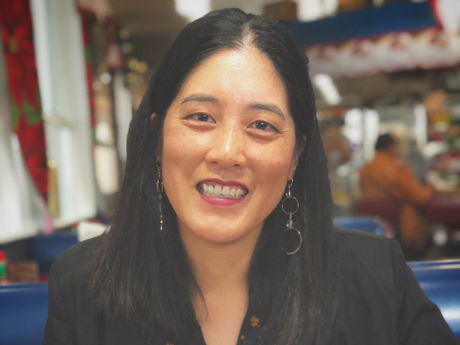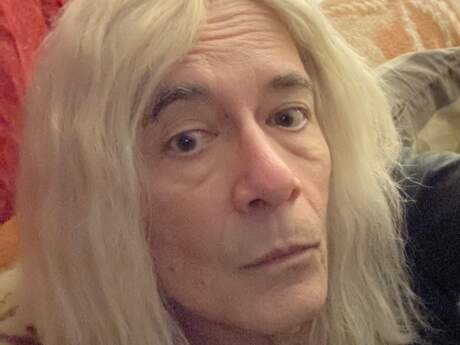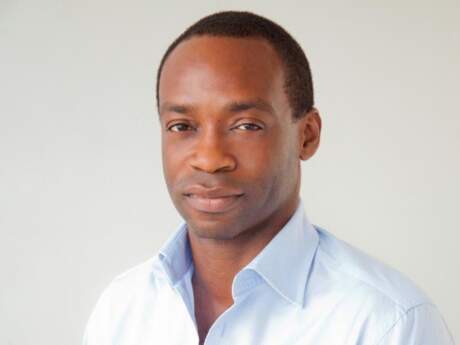Stopping By
Stopping by with Victoria Chang

During this extraordinary moment—of both pause and activism—we asked writers, musicians, curators, and innovators to reflect on the power and memory of language, shared spaces, and this moment in time.
Victoria Chang’s poetry books include OBIT; Barbie Chang; The Boss Salvinia Molesta; and Circle. OBIT was named a New York Times Notable Book and a TIME Best Book of the Year. The book received an Anisfield-Wolf Book Award, the PEN Voelcker Award, and the Los Angeles Times Book Prize. It was also longlisted for a National Book Award and named a finalist for the National Book Critics Circle Award and the Griffin Poetry Prize. Chang is also the author of the children's books, Love, Love and Is Mommy? She lives in Los Angeles and is the Program Chair of Antioch University's Low-Residency MFA Program.
What is your first memory of poetry?
"What is your first memory of poetry?"
My first memories of poetry are my own poems that I was required to write in elementary school. I still remember the poem I wrote in fourth grade:
“This / is / just / to / say / I / broke / your china vase, / but / I / had to / in order / to / kill / the bug / that / was crawling / on / it.”
I think at that point, I began to understand what a poem was. Then in high school, my teacher required us to memorize a lot of Emily Dickinson so “Because I Could Not Stop For Death” taps in my head daily.
What is the last thing that moved you?
Honestly, although I like to present a tough exterior, I am easily moved, so this is a very hard question. Lately I’ve been reviewing books with my friend, Dean Rader, and the most recent book we reviewed was Donika Kelly’s Renunciations. In my weekly poetry group, we’re reading Adam Zagajewski’s “To Go to Lvov,” and that moves me quite a bit actually. I recently re-read Anthony Hecht’s “A Hill” and even though I’ve read that poem 100 times, it still gives me goosebumps.
Is there a poem or book that changed your life?
I feel like everything I read changes my life because it changes how I view the world or touches me in interesting ways emotionally and/or intellectually. I’ve been thinking lately about the living poets who are most important to my own thinking and development as a poet, and I think Jorie Graham would be that poet for me because of the intellectual rigor and thinking in her poems. I also love Robert Hass’s poems and Louise Glück, of course. I admire very much Terrance Hayes as a kind of visionary poet of my generation.
The pandemic continues to keep many public spaces (libraries, concert halls, museums, etc.) closed. What space—and community—do you miss the most?
At this stage in my life, museums. I live in Los Angeles, so there are always so many things to see and not enough time to see everything. The last exhibit I saw was at the Broad (Shirin Neshat). I’m always moved that there are so many people in the world making different things. If I could have been doing anything else, I think I would have been a visual artist of some kind, maybe a sculptor or a painter (I know, such a cliché).
Who is a living artist you most admire who is no longer living?
There are simply too many poets I love. I think often of Brigit Pegeen Kelly and Larry Levis because they both left us too early. I often think of my poet friend Jake Adam York who passed away many years ago. Sometimes I talk to my dead friends or family and tell them all the things that are happening in the world. I would have loved to have had coffee with Marianne Moore, Virginia Woolf, and Gertrude Stein. I am inspired by the women who went their own ways.
If you were to choose one poem or text to inscribe in a public place right now, what would that be? And where would you place it?
I’m actually working on a public project called “Love Letters in Light” where 15-line poems will be placed on LED lights on some libraries in Los Angeles County. Maybe I’ll just borrow one of those (these are intentionally a little cheesy):
“Let me tell you a story about hope: it always starts and ends with birds.”
What do you see as the role of art in public life at this moment in time?
I don’t really think the role of art in public life changes that much in the scheme of things. I, like many others, am very pleased to see the general public’s welcoming of Amanda Gorman and very happy to see her rise—what a light she is in a period of darkness. I think our society will always have a place for many different kinds of artists such as Gorman, as well as the writer who might be writing in obscurity or to a much smaller audience (which is almost every poet). I think we each just do our own things and keep on making things because that’s what we do as artists. I think only later, maybe 100 years later, will others be able to more aptly articulate what role we had but we won’t be here, so it won’t matter to us. Maybe this is a better question for them.
When it’s safe to travel again, where are you most looking forward to going and what are you most looking forward to doing there?
I would love to return to Shanghai. I visited NYU Shanghai a few years ago and did not properly take advantage of my time there because I had a lot of stress in my life and had trouble focusing on much beyond that stress. I say this as if I have no stress in my life now, but I think each year, I get better and better at learning how to manage that stress. I really cannot wait to visit Shanghai again and when I do, I plan to explore the city a lot more than I did last time. I’d love to check out the poetry and art scene there.
Are you working on anything right now that you can tell us about?
I just finished two things, of which one is hard to describe and is a sort of prose hybrid thing with some visual elements, called Dear Memory: Letters on Writing, Silence, and Grief (Milkweed, October 2021) and a book of poems, The Trees Witness Everything (Copper Canyon Press, Spring 2022). I’m hoping to get back to writing sometime in the future, but in the meantime, I am really enjoying not writing.


